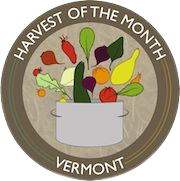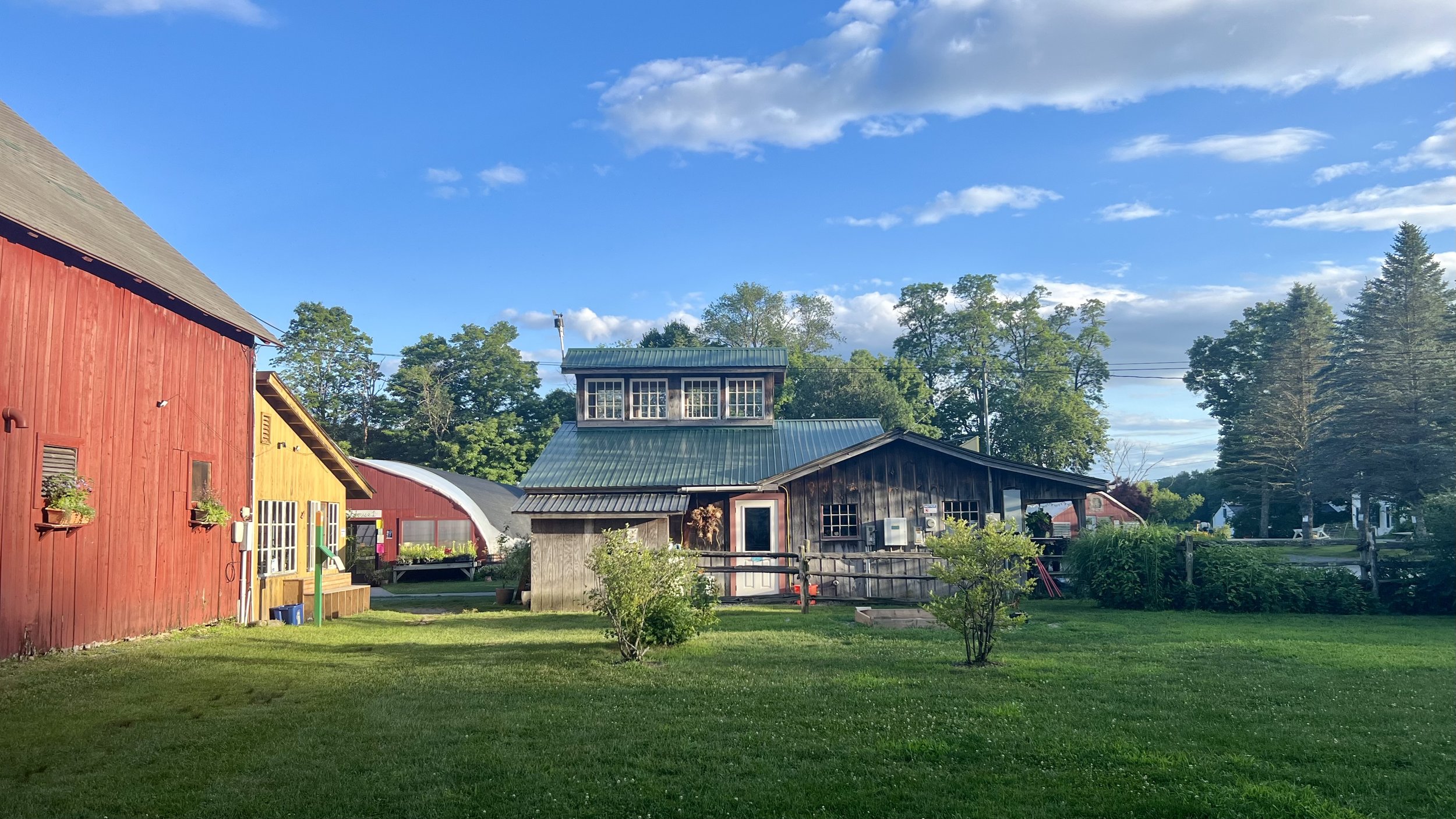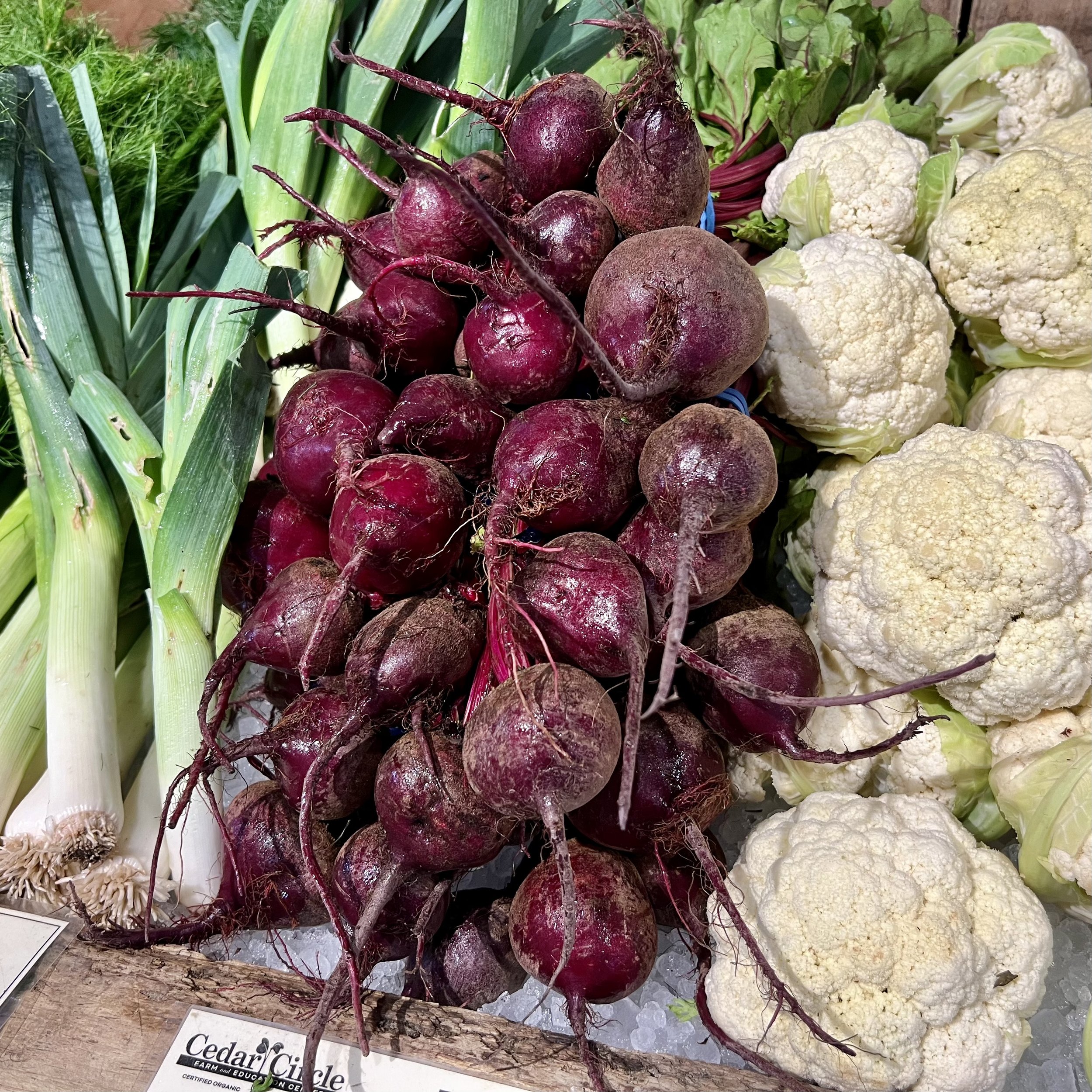Rooted in Sustainability: Why Beets matter at Circle Cedar Farm & Education Center
Cradled by an arching bend of the Connecticut River, Cedar Circle Farm and Education Center is a haven for agriculture, education, and community connection. Established over 20 years ago by Will Allen and Kate Duesterberg, this nonprofit educational and research farm has blossomed on its rich, fertile grounds in East Thetford, Vermont.
More than just a farm, Cedar Circle is a gathering place where dedicated staff, local community members, and enthusiastic children come together to connect with the land and nutritious, healthy crops. Through workshops, camps, and classes, the farm invites everyone to explore regenerative agriculture and learn how farming can pave the way to a better future for all.
At the core of this mission is a deep commitment to caring for the land that nourishes their crops. As they’ve grown, Cedar Circle Farm has learned that this extends beyond soil health. With thoughtfulness and care, the farm distilled its multifaceted practices into one guiding principle:
“Continuous improvement in all that we do: our biodiversity, crop health, soil health building practices, staff wellness, and community engagement.”
One crop that embodies this philosophy is the beet—a community favorite known for its exquisite flavor, impressive nutritional benefits, and versatility in both growing and storage.
Each year, Cedar Circle Farm devotes about ¼ acre to growing direct-seeded red and golden beets. These vibrant vegetables are sold directly to the local community, sustain staff throughout the winter, and are transformed into delicious value-added products at the farmstand.
Versatile and resilient, beets nourish the community nearly year-round.
From the tender, early-harvest greens—similar in flavor to chard or spinach—to the hearty, bulbous taproots that store well through winter and into early spring, beets are at the heart of Cedar Circle Farm’s offerings.
“Beets make the best use of our growing season and the sunshine when we have it, storing that energy and nutrition for a very long time,” says Stacey Cooper, Director of Agriculture at Cedar Circle Farm.
Absorbing the sun’s rays and converting them into sugars, beets act as an energy ‘solar collector’. With long term storage capacity, beets trickle out energy into the community; fresh, roasted or pickled, providing nourishment long after the harvest.
“Beets are a prime example of a really sustainable crop for the Northeast,” says Cooper. “They maximize our resources in the field and provide a long season of nutrition.”
Originally native to Europe and the Mediterranean, beets thrive in the temperate climate of New England. “They’re somewhat easy to grow,” Cooper shares.
While pests and diseases can occasionally pose challenges, Cooper notes that the farm overcomes these issues by growing beets in large quantities.
At Cedar Circle Farm, beets are grown organically typically without any treatment, yielding impressive results.
For these reasons—storage, nutrition, and ease of growing—beets are a model crop when it comes to sustainability.
Cedar Circle Farm is actively working to educate local communities to rethink the crops they purchase and rely on. This effort highlights an important truth: not all local produce is created equal when it comes to resource inputs.
“Some crops make sense to grow here,” says Stacey Cooper. “As opposed to those that push the limits or create unnecessary struggles for farmers.”
While Cedar Circle Farm values the importance of a diversified operation, it also acknowledges that certain crops are better suited to New England's fickle climate than others.
Advances in growing techniques and the increased use of high tunnel greenhouses have expanded the range of crops that can be brought to harvest.
However, Cedar Circle Farm emphasizes that just because something can be grown doesn’t mean it should become a staple of local economies.
This highlights an important responsibility for us as consumers: to better understand the resources, challenges, and impacts involved in bringing food to market.
Cooper dreams of a future where crops like beets are labeled not just as organic or locally grown, but with indicators that reflect their sustainability and alignment with regenerative farming systems.
Until that day comes, Cedar Circle Farm will continue to lead by example, sharing their knowledge and passion for sustainable farming practices with farmers, families, and the broader community. Through education and collaboration, they hope to inspire a collective shift toward a more resilient food system—one that nourishes the land and many generations to come.
For more information on the work being done at Cedar Circle Farm and Education Center, please visit their website at https://cedarcirclefarm.org
Written by Devan Monette




